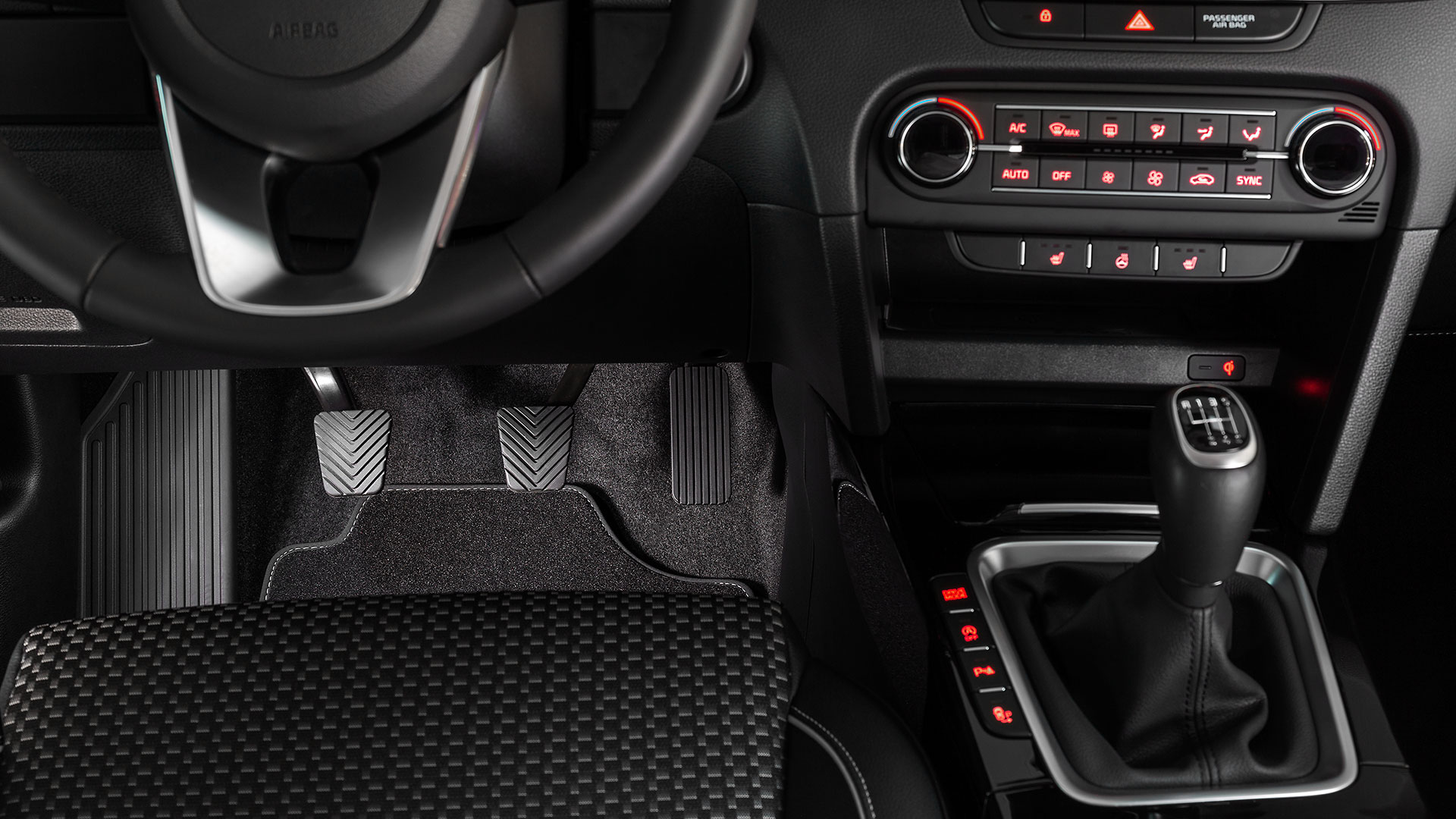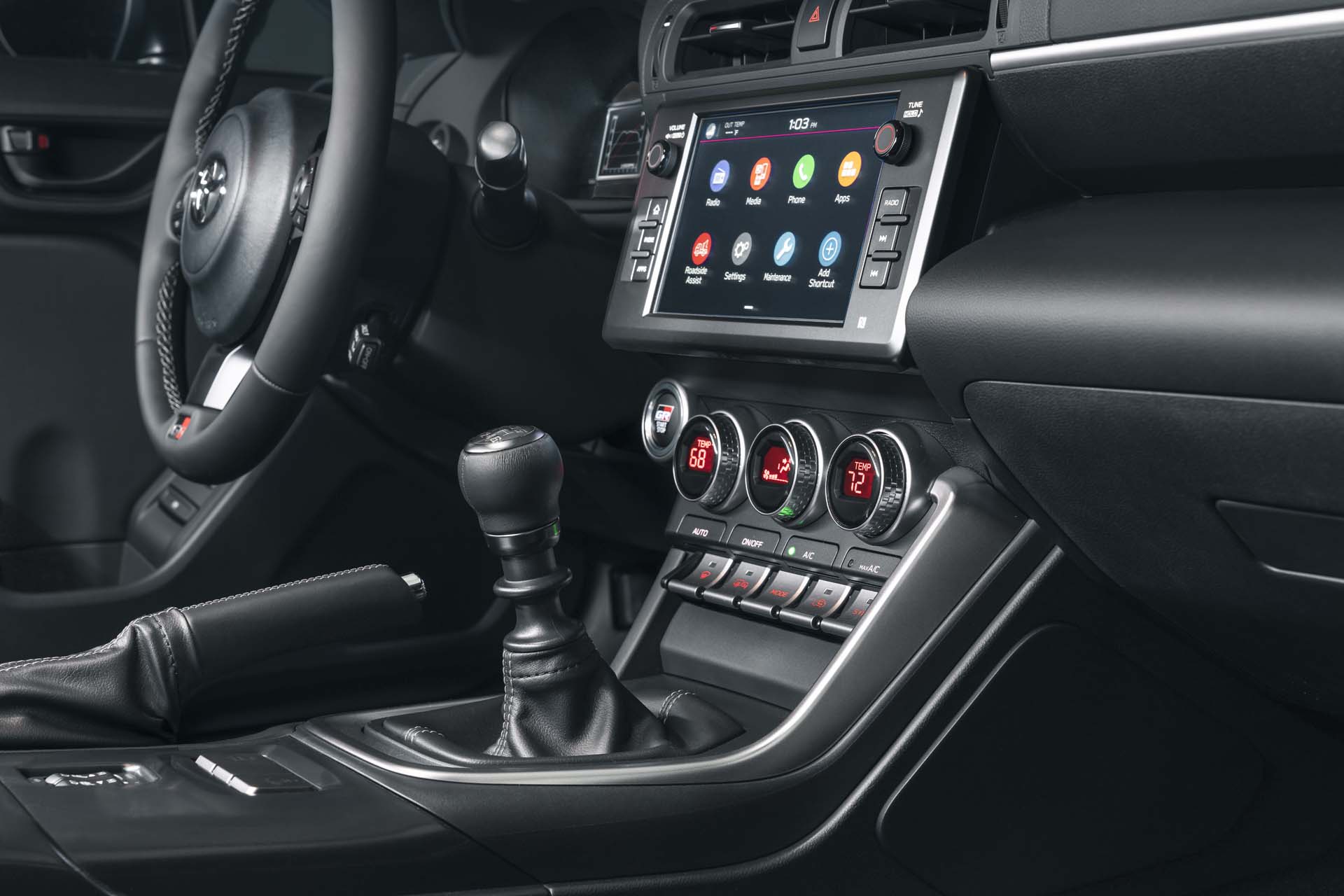Will Kia and Toyota save the manual?
The manual gearbox has been losing popularity in recent years. Various reasons (such as the rise of BEV/PHEVs) mean that more cars are currently being produced with an automatic transmission than with a manual transmission. However, there is still hope for gear stick enthusiasts and this hope comes from Asia.
KIA Intelligent Manual Transmission (IMT)
Anyone who thinks this hope is music for the future is wrong. In 2020, KIA already unveiled the 'Intelligent Manual Transmission' (abbreviated to IMT). The technology is currently already being used in various mild hybrid cars (MHEV) that the brand offers. The main goal of this technology is to increase fuel efficiency and further reduce CO2 emissions. All this while preserving the oh-so-wanted driving experience.

The system uses clutch-by-wire technology. That means the clutch pedal is no longer directly connected to the clutch actuator, allowing the electronics to determine when to disengage. For example, consider rolling out to a traffic light. The combustion engine can also be switched off at these moments (so faster than with a conventional Stop & Go start-stop system, where the car has to be stationary), and thus the fuel consumption and CO2 emissions appear to decrease by a total of about 3 percent. The Intelligent Manual Transmission only operates the clutch, so does not affect the shift action itself. The selected gear therefore remains engaged at all times. As soon as the accelerator or brake pedal is depressed, the engine restarts thanks to the starter motor and the electronics will determine when the engine should be reconnected to the gearbox.
The system can therefore be operated exactly like a conventional manual gearbox, but secretly the electronics provide just that little bit more efficiency. Kia even promises that the operation of the clutch pedal is even better, because of the electronic control. A clear 'grip point' guarantees smooth gear changes.
Toyota claims promising patents
Toyota, which can be seen as the Asian king of EVs, also sees a future in the manual gearbox. At the beginning of February, the Japanese car giant claimed several patents that might make the enthusiasts of the manual very happy. It concerns 'simulated clutch pedal' and 'gear shift functions' that should be applied to EVs. The patent drawings and diagrams show that the system relies on a special controller that changes the torque of the electric motor, making it feel like the torque curve of an internal combustion engine car and 'shifting' seems necessary.

Toyota's statement goes even further in this regard, as they say themselves: “The electric vehicle contains a gear lever and a clutch pedal that simulate the effect of the shifting feeling of a vehicle with a manual transmission. However, these functions are not essential to driving the vehicle and have more to do with reproducing the feel and pleasure of a manual transmission than the actual function.” Toyota further states: “The shift lever is operated by the driver to select any virtual gear phase mode from multiple virtual gear phase modes”. The images that Toyota has added to the patent show a traditional-looking dashboard with the fictitious gear you are currently driving in. So it's basically a pseudo-manual gearbox. In the car world there are immediately all kinds of rumors about various (sporty) models that Toyota may soon launch.
Andy Palmer, former CEO at Aston Martin, also sees a point in an EV with a manual gearbox. “Obviously you don't need a manual gearbox or a transmission on an electric motor, but the bottom line is that this is not a rational decision. It's irrational, it's emotional. I think it's interesting in that context, because it's relatively easy to perform in an electric car." The big question, however, will be whether the 'purist' is interested in this. Because is it only the gear lever that gives it the driving experience or the combination between the lever and a combustion engine? In any case, it is an interesting development that is more than worth following. We are curious whether these patents and ideas will actually be marketed.

 da
da de
de es
es fr
fr it
it nb
nb nl
nl pt
pt sv
sv fi
fi